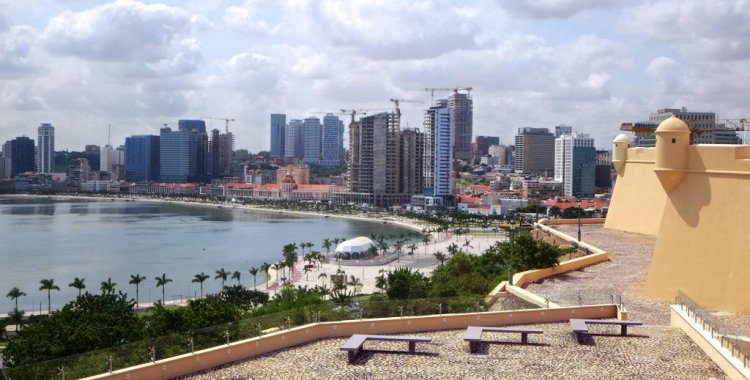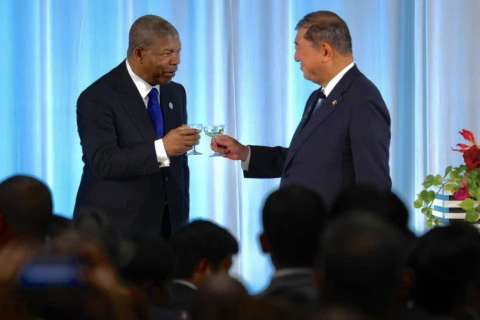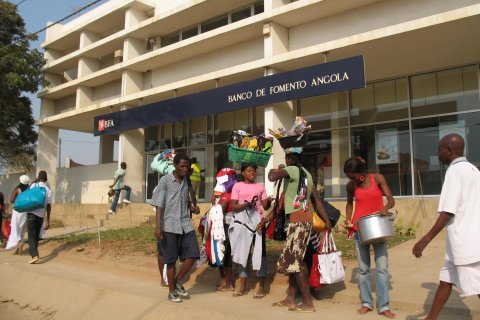"The IMF (International Monetary Fund) estimates that the Angolan economy will continue to grow above 3 percent, our perspective is that there will be a slowdown in economic growth in Angola, probably the Angolan GDP (Gross Domestic Product) will grow at a faster pace. slow," he said on Wednesday night in Luanda.
One of the factors that would cause this slowdown, he explained, is the lower supply of currency, as the Angolan economy "works when it has enough currency".
"It would be very interesting to understand how, in a context of reduced exports, how the country will be able to maintain an adequate supply of foreign currency", he stressed, when speaking about "Angola, Sustainability of Economic Growth: Challenges to Accelerate Public and Private Investment" at an event organized by Standard Bank.
For the chief economist of this financial institution, the Government should change the pace of implementing reforms in the country, not only to create more jobs, but to generate price stability that allows the replacement of citizens' purchasing power.
This change in the pace of implementation of the reforms must arise to respond to the problem of unemployment and social pressure in the country, he considered.
"It is clear that the pandemic had a very negative impact on the economy and unemployment reached a peak in the wake of covid-19, but without a doubt it is necessary not only to generate more jobs, but to generate price stability that allows the restoration of the power of buy," he said.
In the expert's opinion, public policies in Angola should be more focused on social aspects and this should be reflected in the National Development Plan (PDN 2022-2027), which is in the pipeline.
"Probably these aspects will make the set of policies that the Government will implement look more at social aspects than what we saw in the past, where the emphasis on reforms was very strong", he underlined.
"And this should be reflected in the PDN that the Government is preparing, but there are already some signs, such as the program to increase food production, that is, there is a set of programs that indicate more attention to the social pressure that is experienced in Angola", he stressed.
The speaker of the 1st Edition of the Economic Briefing 2023, promoted by Standard Bank Angola, also spoke about the slowdown that he says is registered in imported inflation and domestic inflation in Angola, stimulated by the Food Strategy Reserve (REA).
"Through the REA and import of basic basket products, the Government has been consistently placing products on this market at a stable price, this helps to stabilize inflation in the short term, but can also discourage investment", he noted.
He pointed to the need to look at aspects of sustainability in the Government's actions, noting, at the same time, that the drop in inflation (17 percent in 2022 and around 10.5 percent for this year), also encompasses risks, particularly in terms of fuel prices.
As fuel prices have not changed for many years, he noted, if the Government were to adjust prices to market prices "there is no doubt that inflation would be much higher".
"There was an effort by the Government to subsidize, to help contain inflation, but this policy is also not sustainable, our expectation is that at some point there will be a correction and this correction, without a doubt, will bring pressure on inflation", pointed.
Regarding oil production in Angola, Fáusio Mussá considered that there are two factors that contribute to the drop, believing, however, that it will stabilize around 1 million barrels/day.
"We can clearly see that there is a historical trend of decreasing production and this reduction reflects two main factors: first, there has not been enough investment to stabilize production or increase production," he said.
The maturity of some oil wells and operational issues, which also generate some difficulty in maintaining production levels, was pointed out as the second factor.
He also considered, in his speech, that economic growth in Angola, in 2022, was basically registered in the non-oil sector, "mainly due to the drop in oil production volumes".
"This year, a slight increase of around 2 percent in oil production is expected, but at the same time the non-oil economy is expected to grow at a slower pace and the main reason for this deceleration in non-oil GDP has to do with a supply of currency lower than what the market needs to grow", he insisted.
Mussá also referred to the Angolan State's recourse to direct financing via the National Bank of Angola (BNA), "something that did not happen since September 2021", noting that if the practice continues this mechanism could be inflationary.
"It was to be expected that, in the event of a need for funding, the (Angolan) State would continue to use market instruments, so we think that this use or recourse to the BNA will be a one-off thing, because it could be inflationary if it starts in this way", pointed out the economist.
He also said that the value of the Angolan public debt, in absolute terms, did not vary much and is around 50 billion dollars, but, he noted, the debt-to-GDP ratio "has improved a lot".







